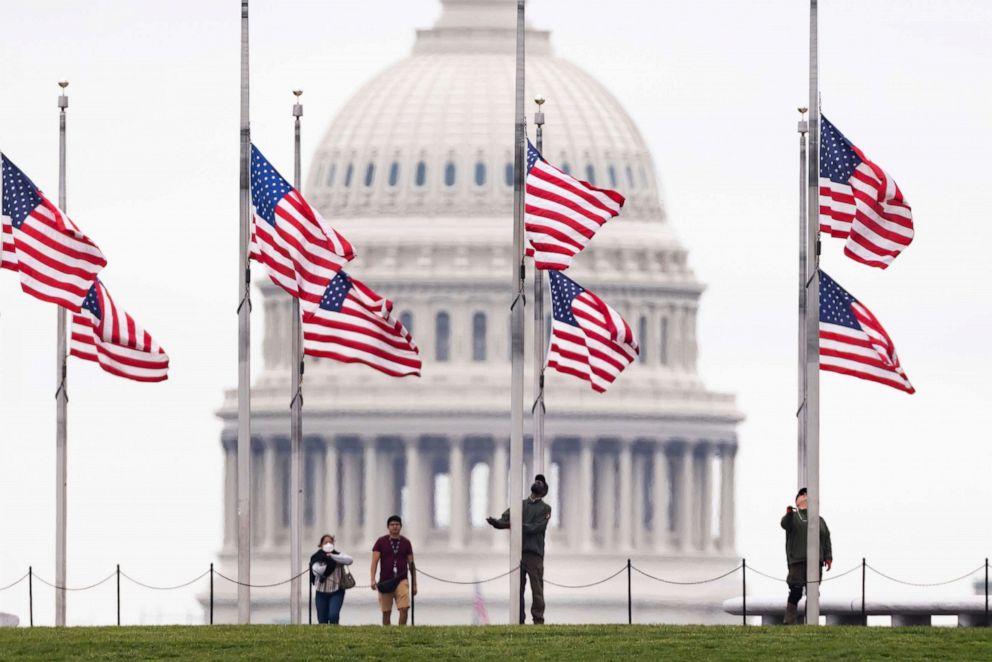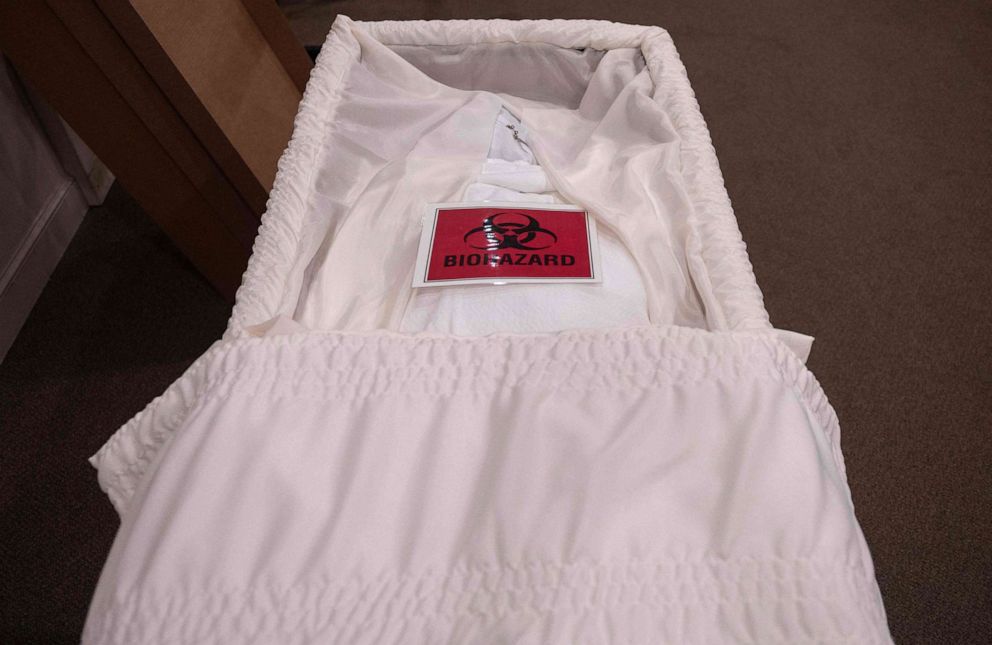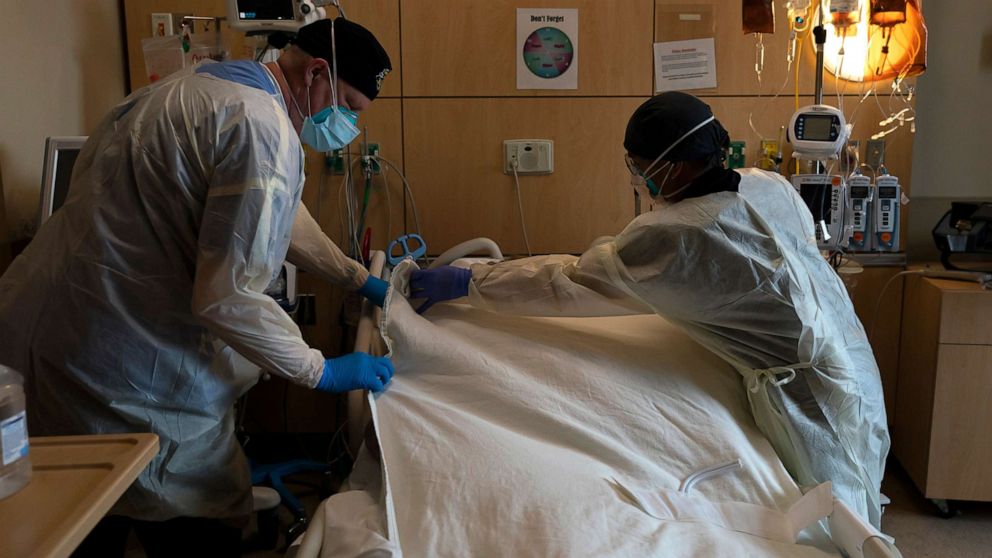1 million COVID deaths but only 350K families have asked FEMA for funeral cost help
Despite the U.S. recording more than 1 million COVID-19 deaths this week, few families have taken advantage of a government program to help cover the cost of funerals for victims.
In April 2021, the Federal Emergency Management Agency launched a funeral assistance program, offering to reimburse loved ones up to $9,000, which is the average cost of a funeral.
However, only about one-third of families who are eligible have received reimbursements.
In the year since the program began, FEMA has distributed $2.3 billion to 351,000 Americans to cover funeral costs for about 369,000 people who have died from the virus, averaging about $6,500 each, according to FEMA data released earlier this month.
In a statement to ABC News, FEMA Press Secretary Jeremy Edwards sad to date the agency has distributed funds to 25,000 additional Americans.

To qualify for assistance, applicants are required to submit a death certificate that states the death "may have been caused by" or "was likely the result of" COVID-19 or COVID-19-like symptoms.
The death almost must have occurred on or after Jan. 20, 2020, which is the date the first laboratory-confirmed case of COVID-19 was reported in the U.S.
Applicants must apply over the phone and, following the call, can submit proof of funeral expenses -- such as itemized receipts, invoices or funeral home contracts -- or other assistance online, by mail or via fax.
Reimbursements can be used to cover any portion of funeral expenses including burial plots, caskets, preparation of the body, cremation, urns, clergy, services and headstones as well as costs related to state or local ordinances and producing death certificates.
Temporary tourist visa or work visa holders are not allowed to apply for assistance. Additionally, pre-planned or pre-paid funerals are not eligible for reimbursements even if the individual died of COVID-19.
"The majority of ineligibility decisions are due to funeral expenses being paid by another source, such as funeral or burial insurance," Edwards said in a statement. "Any payment made specifically for a funeral prior to death is considered a duplication and is not eligible for reimbursement."
An ABC News analysis comparing the number of FEMA applications to COVID-19 death tolls from the Centers for Disease Control and Prevention found North Carolina led the U.S. in applications for funeral assistance at 68%.
States in the South including Alabama, Kentucky, Mississippi and South Carolina had the highest rates with 58% or more deaths leading to applications. Meanwhile, states in the West had the lowest participation rates with Montana, Oregon and Washington seeing 37% or fewer deaths leading to applications.
To make more Americans aware of the program, FEMA launched an outreach campaign in March 2022 with paid advertisements and media roundtables held in several languages.
"FEMA will continue reaching out to all affected communities, including those that have been historically underserved, which is why we recently launched a targeted outreach campaign -- in San Bernardino, California; Bronx County, New York; Philadelphia; and Hidalgo, Texas -- all areas identified with high rates of COVID-19-related deaths, low funeral assistance application rates and high Social Vulnerability Index scores," Edwards said in a statement.
The statement continued, "We’ve also sent over 780,000 letters, initiated nearly 190,000 auto-dialer contacts, and made 64,619 personal outreach calls to increase awareness of the COVID-19 Funeral Assistance Program."
The agency also said it will provide special attention to California, New York, Pennsylvania and Texas, all of which saw high death rates from COVID-19.

Some local community groups have taken it upon themselves to educate people about the process of applying. COVID Survivors for Change, a group that supports those "directly impacted" by COVID held a Facebook Live about the program last year to answer some frequently asked questions about the funeral assistance.
FEMA has provided funeral assistance in the past for Americans killed during federally declared disasters such as Hurricane Maria in 2017 and Hurricane Florence in 2018. However, the agency says this program is the "largest offering of funeral assistance in FEMA's history."




